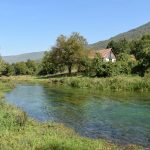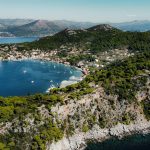When the European Commission presented the EU Green Deal on January the 14th this year, doubts immediately arose as to whether such large financial resources could be mobilised to achieve the world’s first climate-neutral bloc.
As Poslovni Dnevnik writes on the 28th of January, 2020, in order for this to happen, Croatia will need to secure not only substantial investment from the EU, but also from national public sectors and the private sector. From that day onwards, all EU programmes as well as operational programmes adopted at a member state level need to be aligned precisely with the objectives of the EU Green Deal.
The key to success will be mobilising public investment and attracting private funds through financial instruments, and strengthening public-private partnerships so as to bring in the total investment of at least one billion euros needed over the next decade to achieve the clearly set goals.
Did Croatia truly recognise the challenges but also the opportunities of this plan, and just how much are Croatia’s political structures willing to ask and engage the profession? Julije Domac, President of the European Association of Regions and Energy Agencies (FEDARENE), spoke at the EU Green New Deal conference.
”Energy transition and the climate are of particular interest to young people, who traditionally find it difficult to get interested in political topics. It is very worrying to me that at this moment in time, no political option in Croatia has properly included these topics in its programme. I personally hope that the new President Zoran Milanovic and Prime Minister Andrej Plenkovic will recognise the importance of a topic that rises above all political interests and, in the true sense, a topic of the highest national interest – to achieve full joint cooperation on it. Now is a great time to finally catch the wave the EU is riding, it’s now or never,” he stated.
Not ignoring the weight of the moment, Dr. Domac added that becoming the first climate-neutral bloc in the world by 2050 is the greatest challenge and opportunity of our time, but he also offered concrete ways on how this might happen. The EU Green Deal is an opportunity the Republic of Croatia should use to open up a multi-million euro investment cycle and tailor its own positioning and branding within the EU. The energy transition in the context of the EU Green Deal provides an opportunity for the Republic of Croatia to position itself as one of the EU’s leaders, which it has never before succeeded in, and to be branded as 100 percent climate neutral as soon as possible. With the energy transition, we can also work on sustainable tourism and the opening of large investments in the so-called smart sectors of the Croatian economy.
Financing and financial instruments should play an important role in the so-called HR Green Deal Package. It is necessary to open lines of financing for entrepreneurs and the domestic economy through the so-called national funds of the EPEEF (from the sale of emission units), since these funds are paid by the economy; An investment platform should also be launched that will combine EU funds with private equity to a much greater extent, and establish a public sector guarantee line that will ensure participation in EU funding.
In all, it will be necessary to create an appropriate institutional network and framework for the implementation of the activities of the HR Green Deal, to properly involve existing institutions such as EPEEF and HBOR, but also to set up a national energy and climate agency that can be easily structured through the appropriate restructuring of the Hrvoje Pozar Energy Institute. Such an agency should also connect all existing energy agencies that have very valuable results, but also encourage the opening of new ones across Slavonia and Dalmatia. Only with an efficient and well-established structure staffed solely by experts, and with a new approach to financing, can Croatia actually manage to stimulate large investments. Without it, all that can happen to Croatia is just another missed opportunity to add to the already rather embarrassingly long list.
The EU Green Deal also includes the islands that are gaining in importance at the EU level. This is thanks to the result of the work of the existing Secretariat for the Islands, but also of the great work done by Croatian MEP Tonino Picula and his dedicated team.
”At the level of Brussels, there has been a lot of lobbying lately to create a permanent body that will take care of of the EU’s islands. This is yet another great opportunity Croatia should grab with both hands, especially during the EU Council Presidency, as there are no EU agencies in Croatia so far. Setting up a new EU island agency, in a country which boasts more than 1000 islands, would be more than a logical step,” Dr. Domac concluded.
Make sure to follow our politics page for more.











